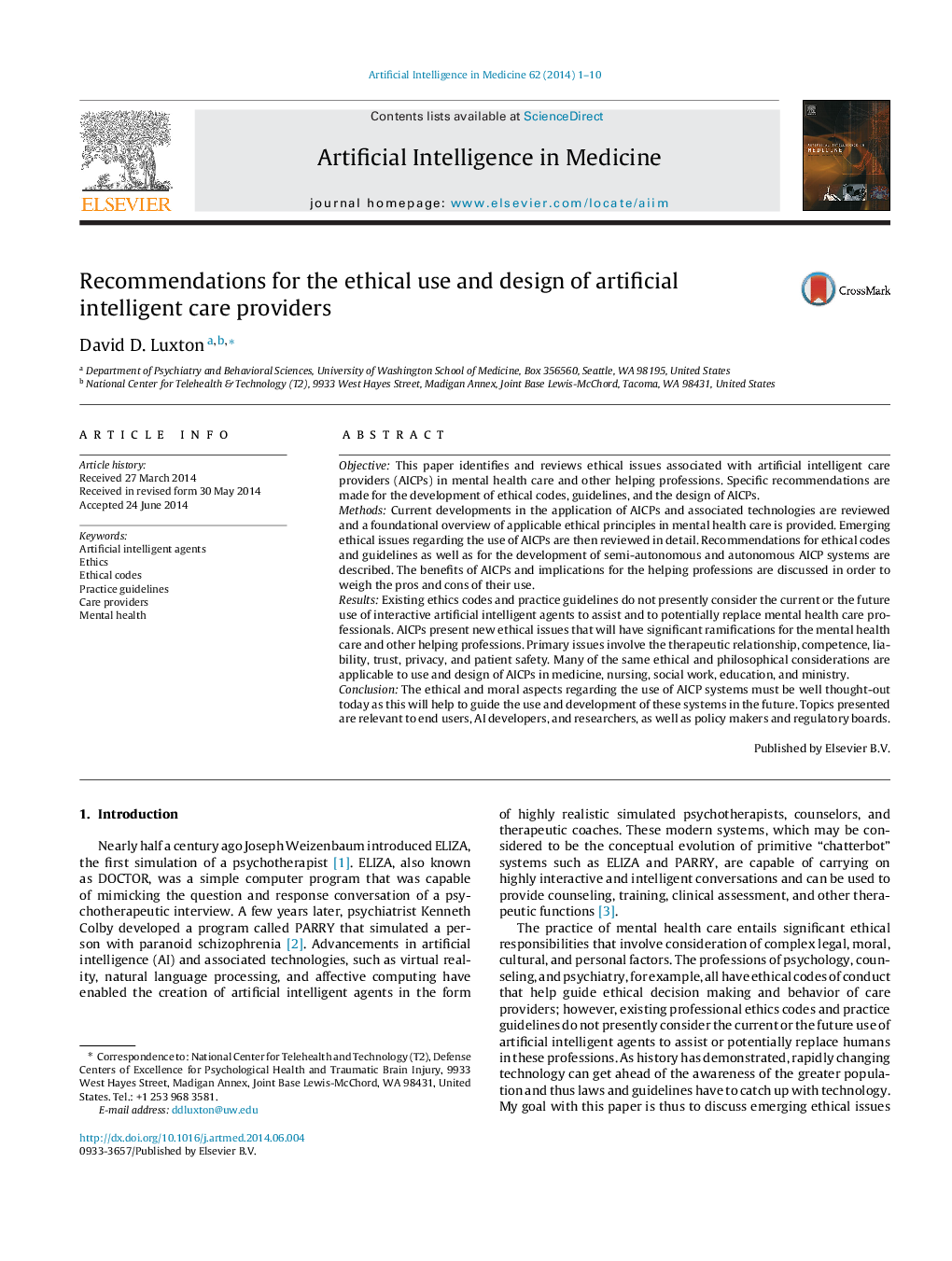| Article ID | Journal | Published Year | Pages | File Type |
|---|---|---|---|---|
| 377618 | Artificial Intelligence in Medicine | 2014 | 10 Pages |
•Ethical, moral, and legal issues associated with AI care providers are reviewed.•The risks and benefits of AI care providers are evaluated.•Professional ethics codes and guidelines need to be updated to address risks.•Recommendations for ethics codes and the design of AI care providers are presented.•Ethical use and design of these systems must be an imperative for all involved.
ObjectiveThis paper identifies and reviews ethical issues associated with artificial intelligent care providers (AICPs) in mental health care and other helping professions. Specific recommendations are made for the development of ethical codes, guidelines, and the design of AICPs.MethodsCurrent developments in the application of AICPs and associated technologies are reviewed and a foundational overview of applicable ethical principles in mental health care is provided. Emerging ethical issues regarding the use of AICPs are then reviewed in detail. Recommendations for ethical codes and guidelines as well as for the development of semi-autonomous and autonomous AICP systems are described. The benefits of AICPs and implications for the helping professions are discussed in order to weigh the pros and cons of their use.ResultsExisting ethics codes and practice guidelines do not presently consider the current or the future use of interactive artificial intelligent agents to assist and to potentially replace mental health care professionals. AICPs present new ethical issues that will have significant ramifications for the mental health care and other helping professions. Primary issues involve the therapeutic relationship, competence, liability, trust, privacy, and patient safety. Many of the same ethical and philosophical considerations are applicable to use and design of AICPs in medicine, nursing, social work, education, and ministry.ConclusionThe ethical and moral aspects regarding the use of AICP systems must be well thought-out today as this will help to guide the use and development of these systems in the future. Topics presented are relevant to end users, AI developers, and researchers, as well as policy makers and regulatory boards.
